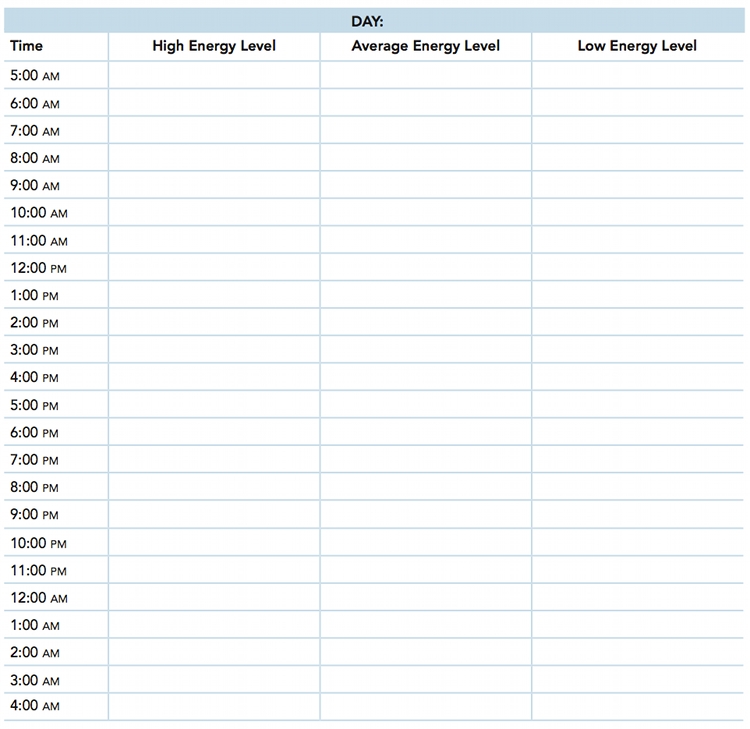Managing Your Energy

Our best plans will not work if we do not have the energy to make them happen. You may plan to spend a couple of hours on your math homework before you go to bed in the evening at the end of a busy day. However, you may find that you are too tired to concentrate and solve the math problems. While learning to manage your time effectively, you must also learn to manage your energy so that you have more control over your life and can achieve success in college.
Along with time, energy is an essential resource, and we have a choice in how we use it. Although energy is renewable, each one of us has a limited amount of it in the twenty-four-hour day. Each person has a daily pattern of physical, emotional, and mental activity. For instance, some people are early risers and have a lot of energy in the morning to get things done; others feel the least energetic and productive in the morning and can accomplish tasks at the end of the day more effectively, especially those tasks that require mental energy and concentration.
You can better manage your energy by recognizing your daily pattern and establishing a routine around it. Use Table 2.1 to record your high and low energy level every day for one week. Also mark when you woke up, when you went to bed, and when you took naps (if any).
To complete this activity, download a copy here.

Considering your daily energy level, obligations, and potential distractions, decide whether you study more effectively in the morning, afternoon, evening, or some combination. Determine whether you are capable of getting up very early in the morning to study or how late you can stay up at night and still get to morning classes on time.
Your energy level also depends on your diet and other habits such as exercise or lack of it. If you are juggling many responsibilities across several locations, you can use some very simple strategies to take care of yourself:
- Carry healthy snacks with you, such as fruit, nuts, or yogurt. You’ll save time and money by avoiding trips to snack bars and convenience stores, and you’ll keep your energy up by eating better.
- Drink plenty of water.
- Take brief naps when possible. Research shows that naps are more effective than caffeine.2
YOUR TURN > ON YOUR OWN

What are you learning about yourself by completing Table 2.1? What are the best and worst times for you to study? Why? To complete this activity, download a copy here.